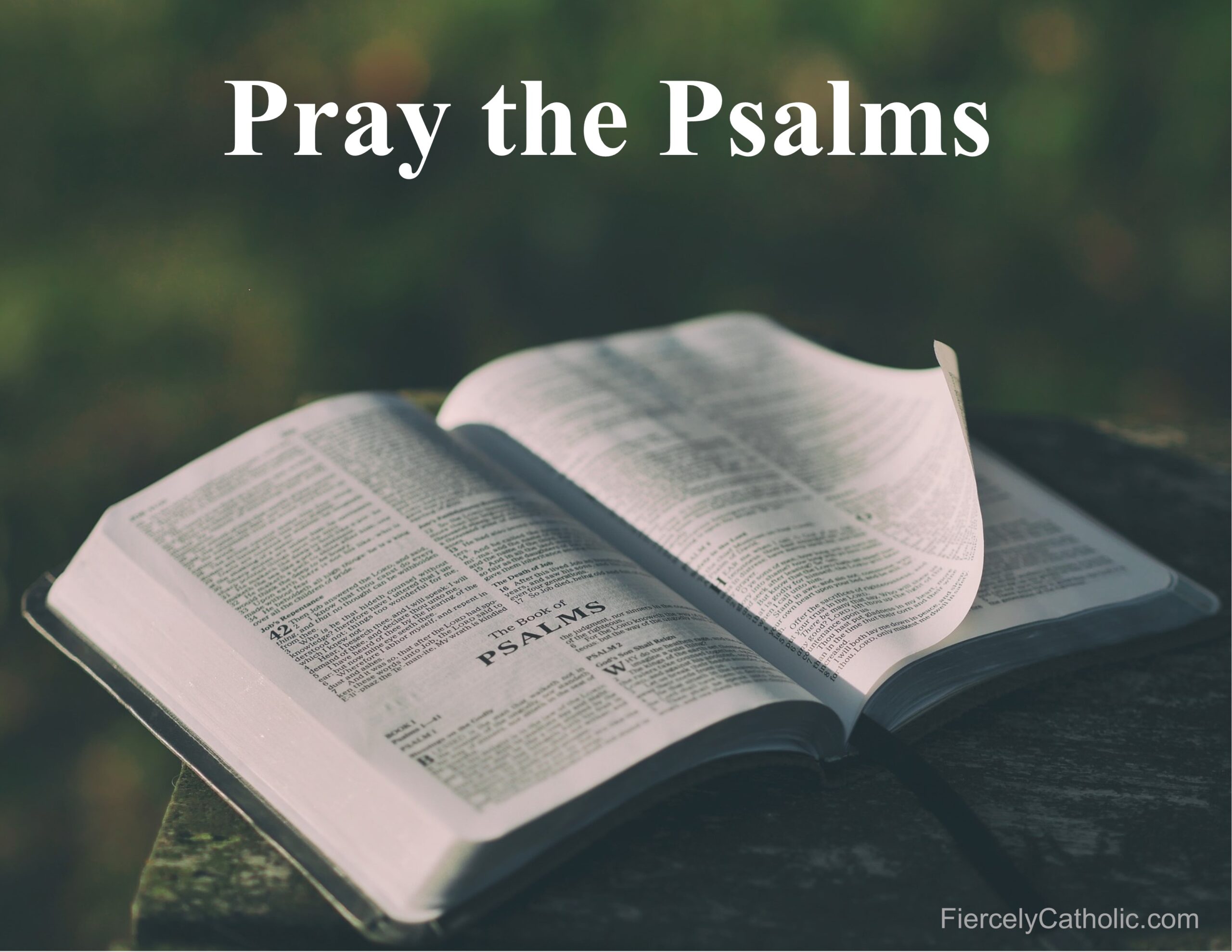
The Book of Psalms consists of 150 prayers, mostly attributed to David, the great King of Israel. They are also collectively referred to as the Psalter.
Either sung, chanted, or prayed, the psalms are poems or songs of praise directed to God regardless of whether they reflect sadness or joy, triumph or defeat.
In Jesus’ day the psalms were prayed by the Jews at the tabernacle and later in the Temple. Today, Catholics pray the psalms in the Mass, during the Liturgy of the Hours, and in private prayer.
The Book of Psalms is divided into 150 chapters but Hebrew and Greek versions differ slightly because some psalms are divided while others are combined. Catholic sources often include both numbers for clarity – Psalm 23(22) for example.
Start with the Book of Psalms:
This is the beauty and the special characteristic of this Book of the Bible: the prayers it contains, unlike other prayers we find in Sacred Scripture, are not inserted in a narrative plot that specifies their meaning and role. The Psalms are given to the believer exactly as the text of prayers whose sole purpose is to become the prayer of the person who assimilates them and addresses them to God. Since they are a word of God, anyone who prays the Psalms speaks to God using the very words that God has given to us, addresses Him with the words that He Himself has given us. So it is that in praying the Psalms we learn to pray. They are a school of prayer.
Pope Benedict XVI, General Audience, June 22, 2011
The songs of the chosen people are still relevant today:
Each type of psalm has special relevance at different moments in life:
The Psalter’s many forms of prayer take shape both in the liturgy of the Temple and in the human heart. Whether hymns or prayers of lamentation or thanksgiving, whether individual or communal, whether royal chants, songs of pilgrimage or wisdom meditations, the Psalms are a mirror of God’s marvelous deeds in the history of his people, as well as reflections of the human experiences of the Psalmist. Though a given psalm may reflect an event of the past, it still possesses such direct simplicity that it can be prayed in truth by men of all times and conditions.
Catechism of the Catholic Church 2588
A virtual Temple for all generations:
The prayer of humanity:
Revealing the inner life of Jesus at Mass:
And we bring you the good news that what God promised to the fathers, this He has fulfilled to us their children by raising Jesus; as also it is written in the second psalm, “Thou art my Son, today I have begotten Thee.” And as for the fact that He raised Him from the dead, no more to return to corruption, He spoke in this way, “I will give you the holy and sure blessings of David.” Therefore He says also in another psalm, “Thou wilt not let thy Holy One see corruption.”
Acts 13: 32-35
The Truth, Goodness, and Beauty of the Catholic Church
A great way to start your day:
Share this page with friends and family to start a conversation about your faith.
Don’t miss a post. Learn more about the Catholic Church and strengthen your Catholic faith.
Find more Fiercely Catholic video issues here.
Subscribe here.


